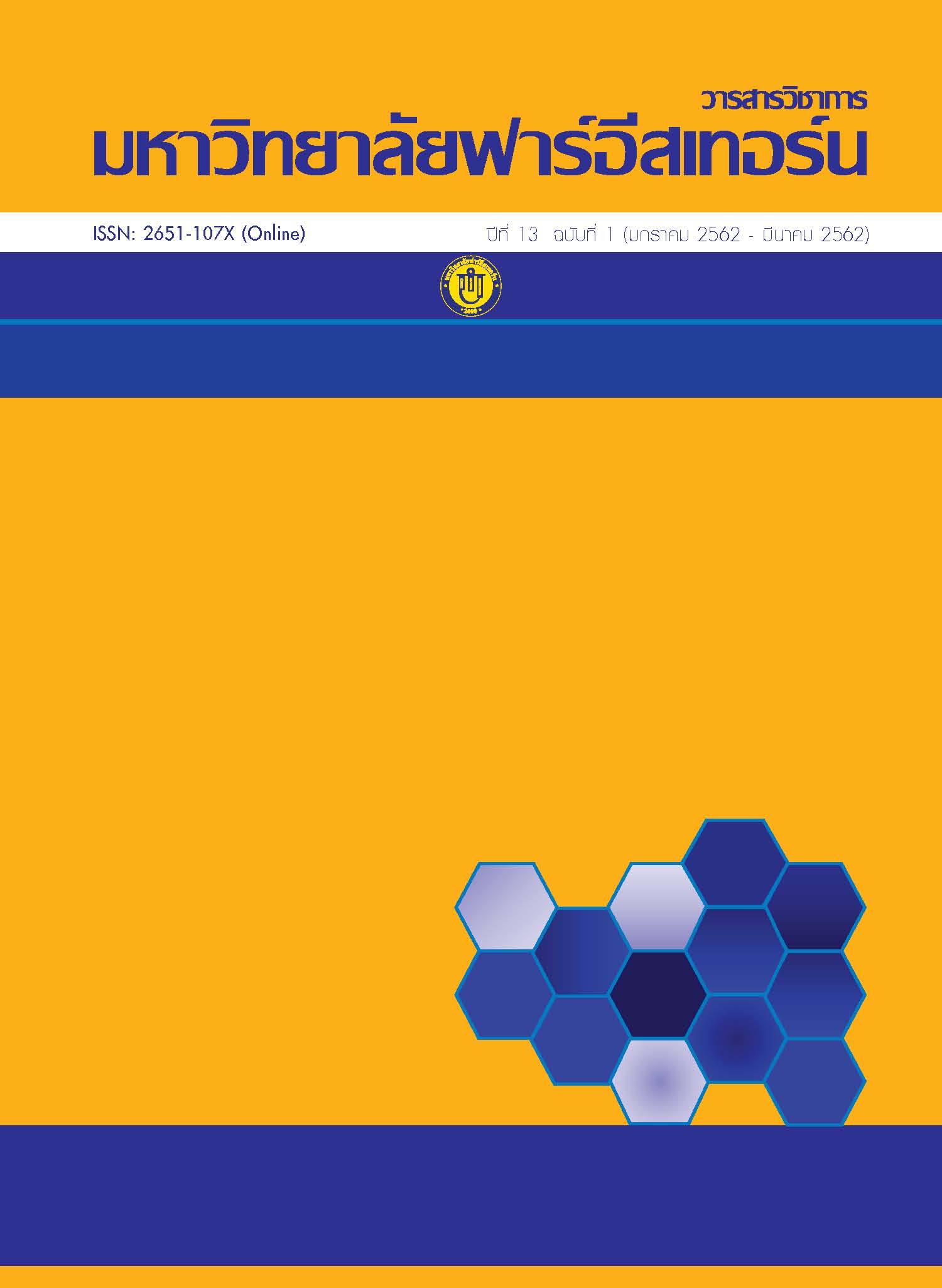Problem-Based Learning Management in Social Studies to Develop Learning Achievement and the Creative Problem-solving Thinking Skills of Mathayomsuksa 5 Students
Main Article Content
Abstract
The purpose of this research were 1) to develop a problem-based learning management on social problems in Thailand of Mathayomsuksa 5 Students. 2) to compare learning achievement of Mathayomsuksa 5 Students before and after learning about social problems in Thailand. 3) to develop creative problem-solving thinking skills of mathayomsuksa 5 students by using problem-based learning management. The research sample consisted of 35 students in Mathayomsuksa 5/1 students, Samakkee Vittayathan School, Muang District, Chiang Mai Province. by Cluster random sampling. The research instruments were 1) a problem-based learning plan 2) the test of learning achievement on social problems in Thailand. and 3) creative problem solving thinking test. Data were analyzed using the mean, standard deviation and t-test. The research found that 1) the problem-based learning management plan designed according to the concept of the Secretariat of the Council of Education, Ministry of
Education contained 8 learning plans. The developed learning plans could improve student achievement. 2) students’ s learning achievement after using the developed plans were higher than before, with the statistical significance at .05 level 3) the average value of their creative problem solving thinking skills was 3.41 and a standard deviation 0.49 which was at the “good” level.
Article Details
1. Any views and comments in the FEU Academic Review Journal are the authors’ views. The editorial staff have not to agree with those views and it is not considered as the editorial’s responsibility.
2. The responsibility of content and draft check of each article belongs to each author. In case, there is any lawsuit about copyright infringement. It is considered as the authors’ sole responsibility.
3. The article copyright belonging to the authors and the Far Eastern University are copyrighted legally. Republication must be received direct permission from the authors and the Far Eastern University in written form.
References
Department of Academic Affairs. (2001). Basic Education Curriculum. 2nd edition. Bangkok: Printing Workshops, Shipping and Packages.
Samakkee Vittayathan School. (2016). Journal of Social Studies. p. 25
Klednatee Chaichana. (2016). Development of the Ubiquitous Learning Environment Model to Promote the Problem Solving Thinking Skills of Vocational Education Students. Doctor of Philosophy thesis Computer Studies Mahasarakham Rajabhat University.
Kriengsak Chareonwongsak. (2000). Network Management: Strategies for the Success of Educational Reform. Bangkok: Success Media.
Mantra Thamabud. (2002). Developing Quality of Learning Using PBL (Problem Based Learning). 5 (February): 11-17
Nawapat Tragoolporn. (2014). The development of Critical Thinking Ability and Inquiry Skills of Grade 11 Students using Problem – Based Learning Model Together with Group Investigation. Education: Master's thesis In Curriculum and Instruction Special Topics in Social Studies Teaching Faculty of Education Khon Kaen University.
Niramon Suttiwat. (2004). General curriculum and methods. Bangkok: Ramkhamhaeng University Press.
Office of the National Education Commission. (2000). Reforming the Learning of the Most Important Learners. Bangkok: Pimdee Printing Company.
Ratchanee Ketsir. (2017). The Effects of Problem-Based Learning in Social Studies, Religion and Culture on the Academic Achievement of Matthayom Sueksa Five Students at Suksanaree Wittaya School and the Desirable Characteristic of Seeking Knowledge. Master Thesis Curriculum Innovation and Learning Management Faculty of Education Ramkhamhaeng University.
Record of Academic Conference Results Samakkee Vittayathan School. (2016). The results of analytical reading in the subject matter of social studies, religion and culture at the Mathayomsuksa 5, Samakkee Vittayathan School.
Secretariat of the Council of Education. (2007). Reading Assessments. Analytical thinking. Bangkok: Printing Workshops, Shipping and Packages.
